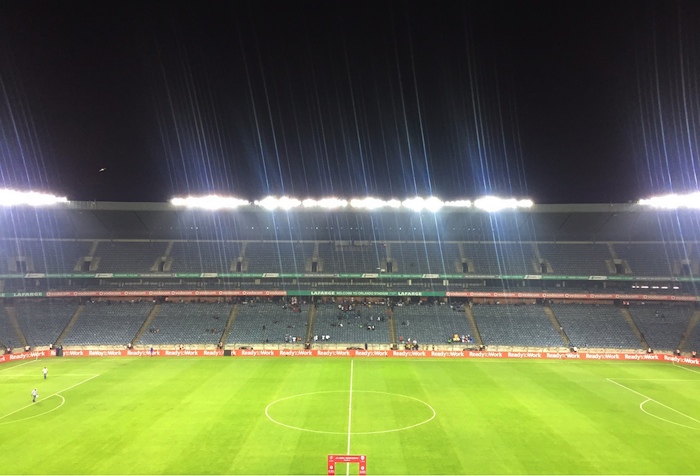
The welfare of South African football used to matter beyond its borders.
In 1974, for example, the Brazilian João Havelange won the FIFA presidency in a fiercely contested election against the conservative English incumbent, Sir Stanley Rous. He canvassed for votes in Africa, Asia and the Americas, sometimes with Pelé in tow. The businessman and former Olympic swimmer promised marginalized FIFA constituencies additional berths in the World Cup finals and greater funding for soccer development programs. Havelange also sided with African activists and the global Anti-Apartheid Movement to keep South Africa out of FIFA. Africa’s delegates reciprocated with their votes and the Brazilian supremo went on to transform FIFA into a massive global business, which he ruled with an iron fist for the next quarter century.
Since readmission to FIFA in 1992, South Africa has won two continental titles at club level and one at senior national team level. Its Premier Soccer League, according to World Soccer magazine, ranks 25th in the world (alongside Scotland). The women’s game has also grown, though significant challenges remain. The country’s successful hosting of the 2010 World Cup symbolized the great advances in South African football, particularly its organizational sophistication and financial resources.
Despite such undeniable progress, local football hardly resonates internationally anymore. In fact, many South African fans and pundits are disillusioned about the state of the domestic game.
Like almost everyone else in the early 1990s, my peers and I were fascinated by the exciting new times ushered in by the demise of apartheid. We were scrawny young boys who, like kids anywhere, lived for the game. We believed readmission into world football ignited the possibility of a future professional playing career. Things worked out differently for us.
On a recent visit to the Lebanon neighborhood of Mabopane, the township of my teenage years, it was disheartening to see how the game was no longer a central part of social life in the community in which I grew up. The dusty fields where we contested many epic duels are covered with shrubs. Those pitches that are still in playable condition are occupied by charismatic churches, which are flourishing in many poor African communities by selling salvation to people in hardship.
Grassroots football, at its best, can serve as a bulwark for a wide range of social ills that thrive where recreational resources, human and material, are scant. Any community with “redundant youth” who have lots of free time is a recipe for disaster. No wonder Mabopane and other townships on the outskirts of Pretoria are at the epicentre of the nyaope street drug epidemic ravaging South Africa today.
The grassroots game has more players and coaches than the formal game administered by the South African Football Association. Even though informal football is neither expensive to play nor to administer, it receives minimal financial investment and is wracked by insecurity and instability. This is why residents of Mabopane, like thousands of fútbol-loving South Africans, take it upon themselves to ensure the vitality of the grassroots game.
Blaming the administrators and corporate sponsors entrusted with the game’s welfare is understandable, but communities can ill-afford to delegate responsibility for social health to people and structures who do not genuinely have their interests at heart. The July 29 tragedy at FNB Stadium, which killed two fans and injured more than a dozen people in a gate crush at the Kaizer Chiefs-Orlando Pirates derby, is a case in point.
The tragedy showed how South African soccer’s leadership struggles with ensuring spectator safety at big matches while continuing to do very little for the development of the sport at the bottom of the the pyramid. Until these fundamental issues are resolved, black families will continue to worry every time their loved ones go to a football match, whether at the neighborhood sandlot or at a World Cup stadium.
6 replies on “In Soccer and Society, Black Lives Matter”
Our football is administered by people who never played football in their lives because they got degrees they think they can run our football. That’s why we struggling to develop our beautiful game.
…this is proper. Thanks to the detailed research,, this article will remain relevant as long as #BlackSportsMenLivesMatter. The author clearly knows what he’s talking about. Thank You.
If we fail to engage our youth as a society, somebody else will, and the results will not be pleasant. But is sport also not a tool used to keep our youth distracted from facing the realities of everyday livity..??
Thanks for the research and this article. Lets play football.
So true… Football in South African has lost its roots hence we are struggling to have good fruits and that leads to hiring players from overseas or our neighbors. Football plays a huge role in the community development if structured well, so let’s not hang on the negative aspects and find solutions to this problems, we have a tendency of thinking that other people will solve these issues whereas we are the solutions.
Great points everyone. Thank you.